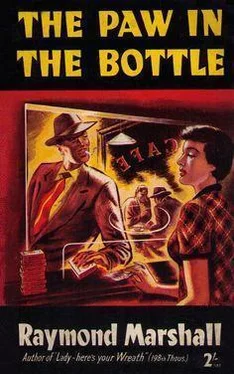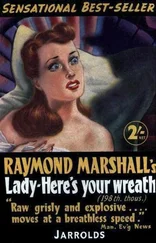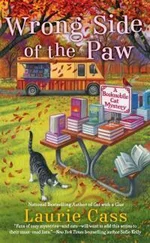Julie got to know Bernstein and Pugsey and the rest. She overheard things. For instance, she overheard a few scattered words from Pugsey as he and the Duke passed her.
‘I won’t split them,’ Pugsey was saying. ‘Twenty-five thousand or nothing. You can handle them all right. What’s worrying you?’
‘That’s a big number for me,’ the Duke returned doubtfully. ‘Most of ’em are Players, you say?’
‘That’s right.’ Pugsey glanced up, caught Julie’s eye, and winked.
‘Twenty-five thousand Players,’ Julie thought. ‘How much would they make out of that deal?’ She saw in the next morning’s newspaper that twenty-five thousand cigarettes had been stolen from a Houndsditch warehouse. It wasn’t difficult to put two and two together.
Life in the café was full of variety and excitement. The telephone kept her busy. The messages she received meant nothing to her. ‘Tell Pugsey greyhound looks good. Got it? Greyhound looks good.’
‘Ask Mr. Goldstack to call me. Boy Blue at twelve.’
‘Message for Mr. Bernstein. Usual time; usual place, C.O.D.’ And so on, code messages that puzzled and intrigued her; that meant money to the men who received them. Pugsey, Goldsack and the others were making themselves rich by these messages because they were wide and in the know. She envied them, although she knew she shouldn’t grumble, for by the end of her third week she was earning twelve pounds a week: eight from Hewart and four from tips.
But the more she earned the more she wanted. Her expenses had gone up. She had taken a small furnished flat in the Fulham Palace Road that cost four pounds a week. She had bought clothes; and she spent money on cinemas and useless junk she picked up in the big stores. It was nice not to work during the day; nice, but lonely. She hadn’t any friends. That was the snag of working a night-shift. You never had the chance of meeting anyone during the day: they were all at work.
She needed male companionship, and sighed for the days when she could have had her pick of escorts by hanging about outside one of the Officers’ Clubs. Going to the cinema on your own wasn’t much fun. She wanted a man who would say nice things to her, buy her presents, and on whom she could bestow favours if she felt so inclined.
The men she met in the café were too busy making money to bother with her. She could have had Hewart easily enough but he was too old. At first he was tiresome, but she quickly learned how to handle him. Enclosed in the glass cash-desk all the evening, he didn’t get much chance of pawing her. The time to watch out was when she arrived and when she left, and she took care to arrive and leave with the other members of the staff. To keep him happy, she allowed him a few liberties, and as the spiv had said, he was easily satisfied. She wanted a companion of her own age, who could share her interests and wouldn’t be pawing her all the time.
She had been working at the café for over three months when Harry Gleb breezed in. She was interested in him the moment she saw him, for Harry had a terrific personality. His wide grin made you want to grin too. His laugh was infectious, his confidence in himself enormous. He was a dashing, colourful figure, and well dressed; his hand-painted tie made Julie gasp. He had a great deal of dark wavy hair, a fine pencil-line moustache, greenish eyes that twinkled with an expression of bawdy good humour. Although he was hard, without scruples, shallow, cocky and selfish, you couldn’t help liking him. He was always smiling, always ready to crack a joke, to lend you a quid, to get a termer on the toss of a coin or drink you under the table. He knew most of the waiters in the swagger West End restaurants by their Christian names. He knew most of the West End tarts, the playboys and the gold diggers, and they liked him. He was a typical London spiv, and he didn’t care who knew it.
He seemed to Julie to be someone right out of a motion picture. Comparing him to other men who frequented the café was like comparing Clark Gable to the fat old man who sat next to her in the underground.
But she was too fly to let him know the impression he had made on her. She was confident of her powers of attraction, and she was sure, sooner or later, he would make the first overtures.
At this time Harry was doing a deal with Syd Bernstein. He didn’t like the Bridge Cafe, nor did he like Hewart, but as Bernstein always went there Harry began going there, too.
He was quick to spot Julie as she sat in the cash-desk, and, as any pretty girl mildly interested him, he took a mild interest in her. It wasn’t until one evening when Julie left the en-closed cash-desk to give a message to the Duke, that Harry had the opportunity of seeing her figure, and immediately he gave a long, low whistle.
‘That’s a nice bit of crackling,’ he said to Bernstein, and jerked his thumb towards Julie. ‘Where did Sam find her?’
Bernstein had no idea, and after he had gone Harry wandered over to the cash-desk and began to flirt with Julie.
She had been waiting patiently for this opportunity, but she didn’t let him see her eagerness. She was cool to him, laughed at his flattery, and snubbed him when he became familiar.
Women were attracted to Harry as pins to a magnet. Julie’s behaviour surprised him. Women were a lot of soppy mares, he had always considered, but they were fun if you had nothing better to do. But this girl was different. He could tell that. She was friendly enough, but there was a jeering expression in her eyes that irritated him. It showed plainly that she knew what he was up to, and was certainly not going to take him seriously. He could be as nice and flattering as he liked, but it wouldn’t get him anywhere.
This attitude intrigued him, as Julie intended it to intrigue him, and he was continually popping in to have a word with her, to bring her a pair of silk stockings or a box of chocolates, and to try to break down the jeering barrier she had erected to keep him at safe limits. He had asked her time and again to go out with him, but Julie refused. She wasn’t going to risk being dropped. She had had a lot of experience with men, and she knew the longer she kept him dangling on a string the more ardent he would be when she did give in.
When Mrs. French asked him if he knew of a girl who’d help them, he immediately thought of Julie. She wanted money, had brains, and was sufficiently reckless to take a chance. But he was a little worried by her persistent refusal to become friendly. Somehow he had to rush her defences, and the best way, he decided, was for her to lose her job at the café before he put the proposition to her. So long as she had a job and some regular money coming in she was independent, and if she had scruples she might turn him down. Harry had a horror of independent women. It was Julie’s independence that kept them apart now. He was sure of that.
The first thing, then, was to get her the sack. But how was he going to do that? He racked his brains to no purpose. She was in solid with Hewart, and there seemed no reason why she should ever leave the café.
‘Well, something will turn up,’ he consoled himself. ‘It always does.’
And it did, but not in quite the way he expected.
Two evenings after the meeting in Mrs. French’s office, the telephone on Julie’s desk rang, and a woman’s voice, breathless and urgent, asked: ‘Is Mr. Harry Gleb there, please?’
Julie felt a tingle run up her spine. She hadn’t seen Harry for three days. She was beginning to wonder if she had handled him a little too roughly, and had driven him to some other woman.
‘I’m afraid he isn’t,’ she said, wondering who the woman could be.
‘Are you sure? It’s very urgent. He said he’d be there. Will you please make sure?’
Читать дальше











